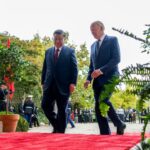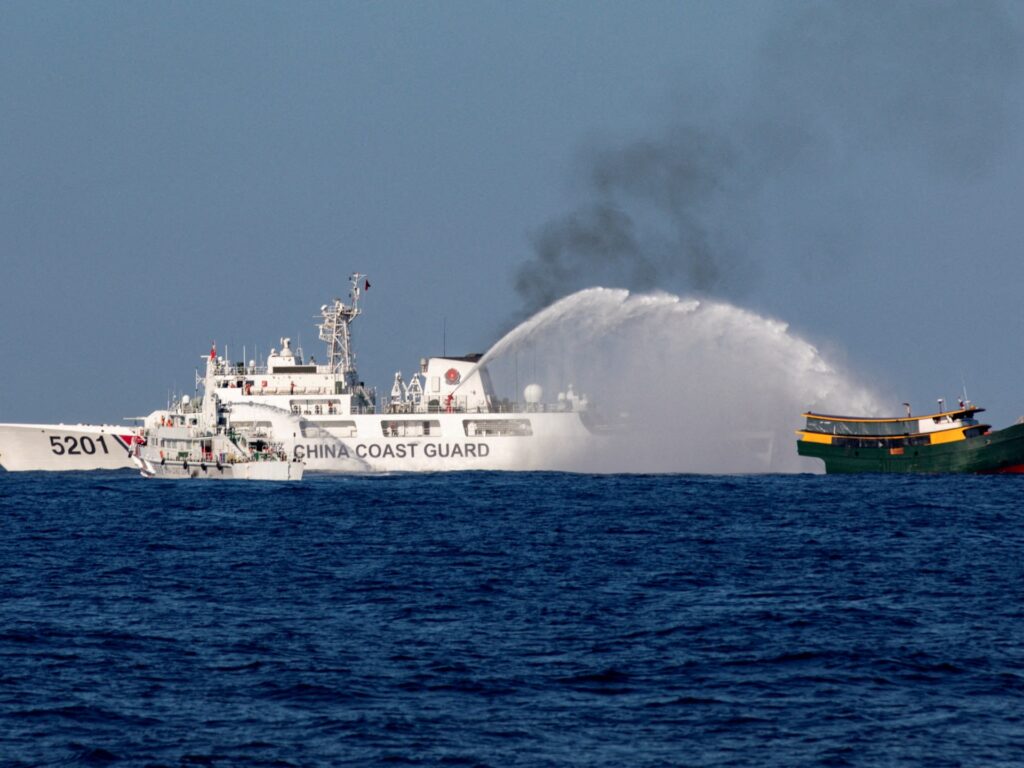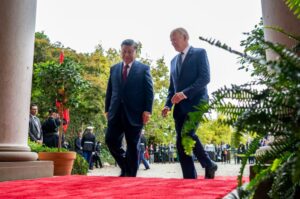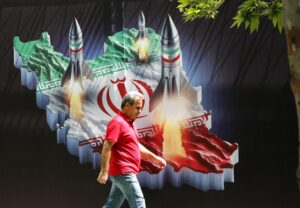
China opposes the Philippine move to define the country’s maritime entitlements in the South China Sea.
China has reasserted its territories around a flashpoint reef in the South China Sea after the Philippines defined its sea boundaries in the contested waters.
Philippine President Ferdinand Marcos Jr signed two laws on Friday to define the country’s maritime entitlements and set designated sea lanes and air routes to “reinforce sovereignty”.
China’s Ministry of Foreign Affairs said on Sunday that it “firmly opposes this and it will continue to take all necessary measures in accordance with the law to resolutely defend the country’s territorial sovereignty and maritime rights and interests”.
Beijing claims sovereignty over nearly all of the South China Sea, including areas claimed by the Philippines, Brunei, Indonesia, Malaysia and Vietnam.
China rejected a 2016 ruling by the Permanent Court of Arbitration in The Hague that its sweeping claims were not supported by international law. The United States, a Philippine ally, backs the court’s ruling in the case, which was brought by Manila.
The Chinese ministry’s statement defined a baseline of “territorial waters” around the Scarborough Shoal, which China claims as its territory and calls Huangyan Island.
The shoal is a major point of contention over sovereignty and fishing rights. China has enacted domestic laws covering the South China Sea, such as a coastguard law in 2021 that allows it to detain foreigners suspected of trespassing.
With an armada of coastguard ships to assert its claims, Beijing routinely accuses vessels of trespassing in areas of the South China Sea that fall inside the exclusive economic zones of its neighbours and has clashed repeatedly with the Philippines in the past year.
China’s coastguard issued a statement on Sunday saying the Philippines has frequently sent military and police warships and aircraft to “intrude” into the waters and airspace near the Scarborough Shoal. It accused Manila of instigating “illegal fishing” in the area.
In August alone, the two countries reported six confrontations in the air and at sea in the contested waterway.
The escalating tensions have threatened to draw in the US, which has a mutual defence treaty with the Philippines and has promised to come to Manila’s aid in the case of any armed third-party attacks against Filipino soldiers. These include coastguard personnel, aircraft or public vessels “anywhere” in the South China Sea.











More Stories
Xi-Biden meet: Tariffs to Taiwan, what ails US-China ties as Trump looms
Paul beats Tyson as former heavyweight champ fails to turn the clock back
Spies like them: The intelligence war between Iran, Israel